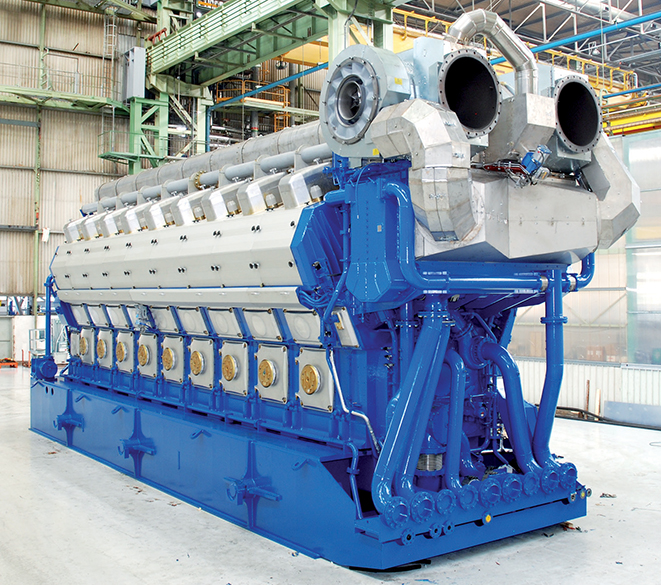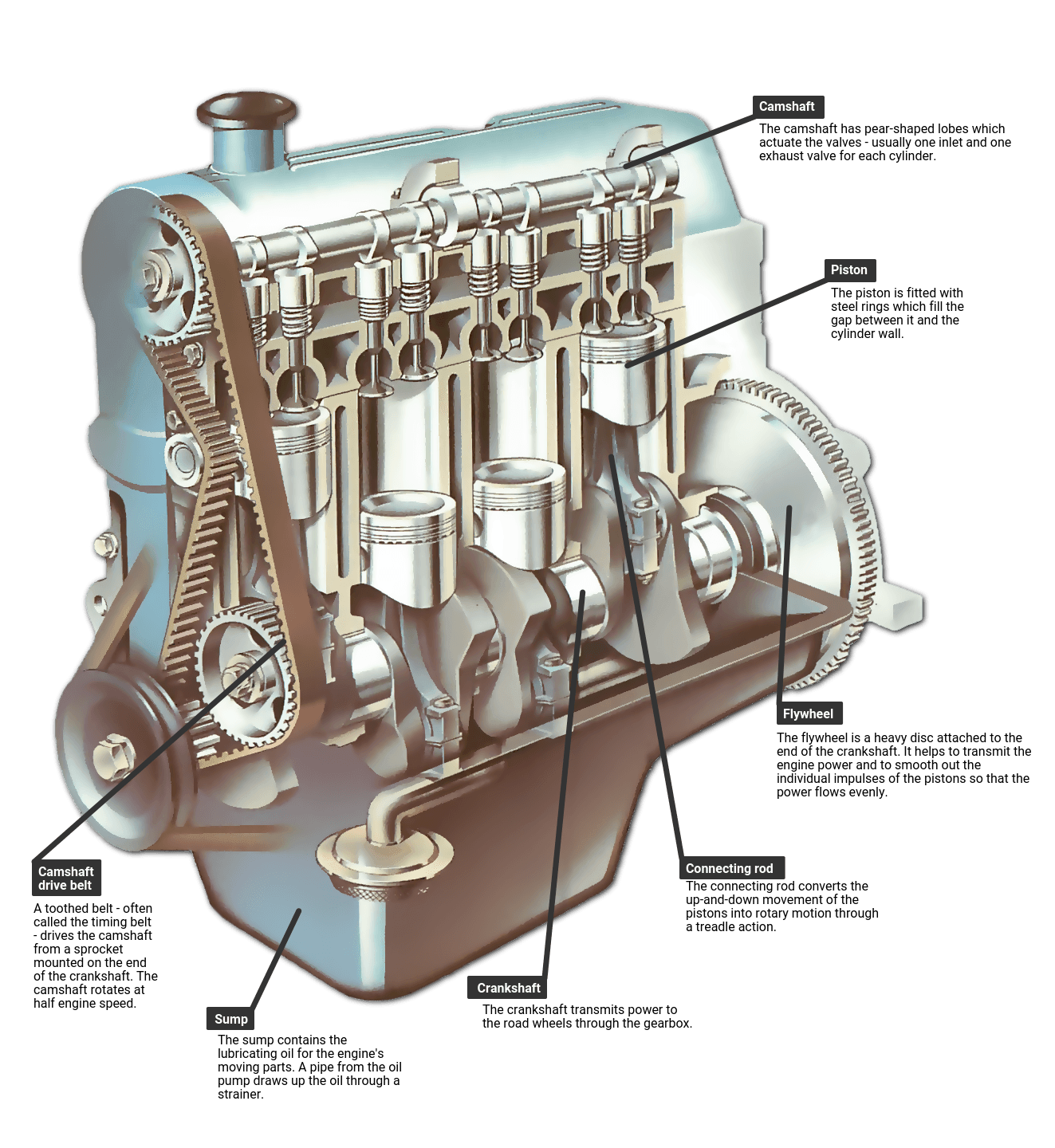Engines For Africa: Top Selection for Automotive Fanatics
Engines For Africa: Top Selection for Automotive Fanatics
Blog Article
A Complete Guide to Selecting the Right Engine for Your Project
Selecting the appropriate engine for your task is an important choice that can considerably affect its total success. It is important to thoroughly define your project requires, examine performance needs, and think about user-friendliness along with other crucial elements. Additionally, understanding the community support readily available and looking at cost ramifications can better fine-tune your choice. Each of these components plays a pivotal role in ensuring that your picked engine not just fulfills immediate goals but also aligns with lasting ambitions. As we discover these considerations, you might discover that the subtleties of each aspect disclose even more than originally anticipated.
Define Your Task Demands
Specifying your job needs is a critical action in choosing the appropriate engine for effective implementation. A thorough understanding of your task's objectives will certainly direct you in identifying the functions and capacities required from an engine. Begin by laying out the extent of your project, consisting of the desired functionality, target audience, and the details end results you intend to achieve.
Following, consider the technological demands that line up with your project goals. This includes reviewing the compatibility of the engine with existing systems, as well as the programming languages and structures that will be used. In addition, assess the level of scalability needed to accommodate future development or changes sought after.
Budget constraints also play a crucial function in defining your task needs. Establish a clear financial framework to assist your decision-making procedure, guaranteeing that the engine picked fits within your spending plan while supplying the essential functionality.
Evaluate Performance Demands

Following, consider the scalability of the engine. Analyze whether it can handle enhanced workloads as your task expands. Engines that sustain straight scaling are usually more effective for larger applications. Additionally, examine the engine's performance under various problems, such as peak usage circumstances, to guarantee it meets your integrity standards.
Think About Convenience of Use
While technical requirements are essential, the convenience of use of an engine can considerably impact the growth procedure and overall task success. An intuitive user interface, clear documentation, and streamlined operations can drastically minimize the learning curve for programmers, enabling them to concentrate on creativity and problem-solving as opposed to grappling with complicated tools.
When evaluating an engine's simplicity of use, consider the onboarding experience. A well-structured intro, total with tutorials and example jobs, can assist in a smoother transition for new individuals. Furthermore, the quality and comprehensiveness of the engine's documentation play a vital function; comprehensive guides and API referrals can encourage designers to fix and apply features effectively.
An additional element to take into consideration is the engine's personalization abilities. An engine that enables easy modifications can be more straightforward, as programmers can customize it to fit their certain requirements without extensive trouble. Finally, assess the workflow integration with systems and tools you already make use of. A natural environment can boost performance and lower rubbing during the development procedure. Eventually, choosing an engine that prioritizes convenience of use can lead to a more satisfying and efficient development experience.
Assess Neighborhood and Assistance
The strength of an engine's neighborhood and support network can substantially influence a programmer's experience and success. A lively area frequently indicates a riches of common knowledge, sources, and troubleshooting help that can enhance your task's advancement procedure. When examining an engine, think about the size and activity level of its neighborhood. Bigger communities generally supply much more discussion forums, tutorials, and third-party plugins, enabling designers to find services much more efficiently.
Moreover, assess the availability of main support networks. Trusted documents, responsive customer support, and regular updates are important for attending to technical problems and keeping your task on the right track. Engines For Africa. Active areas also promote partnership, giving chances for networking and feedback, which can be important, particularly for independent developers or small groups
In addition, investigate the visibility of community-run events, such as meetups or hackathons. These celebrations can enrich your understanding of the engine while linking you with seasoned users and possible partners. In recap, a Related Site robust community and support system not only simplify growth yet additionally produce an environment for finding out and innovation, eventually boosting the possibility of your job's success.
Contrast Expense and Licensing Options
Budget plan factors to consider play an essential function in selecting the best engine for your job, as the price and licensing choices can considerably affect both short-term costs and long-lasting practicality. Engines For Africa. Different engines supply differing pricing frameworks, which can consist of single purchase fees, subscription designs, or go to website revenue-sharing agreements based on your job's earnings

Licensing choices also vary considerably. Some engines are open-source, providing adaptability and website link community-driven assistance, while others may need exclusive licenses that limit use and distribution. Comprehending the ramifications of each licensing model is vital, as it impacts ownership legal rights, future scalability, and prospective legal responsibilities.
Final Thought
To conclude, choosing the suitable engine for a project demands a detailed assessment of defined task needs, performance demands, simplicity of use, area support, and price considerations. By systematically addressing these vital aspects, decision-makers can make certain placement with both current and future job demands. A well-informed option eventually enhances the chance of task success, making it possible for reliable resource allotment and making best use of potential outcomes within the defined budgetary restrictions.
Picking the ideal engine for your project is an essential choice that can considerably impact its total success.Specifying your job requires is an essential step in selecting the proper engine for successful execution. A thorough understanding of your task's goals will certainly lead you in determining the abilities and features called for from an engine.When you have a clear understanding of your project requires, the next step is to examine the efficiency demands of the engine.In final thought, picking the proper engine for a task requires a comprehensive examination of defined task demands, efficiency demands, ease of usage, area assistance, and price considerations.
Report this page